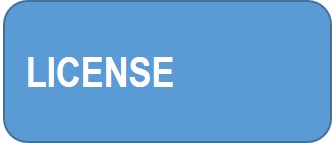Mobile Chemistry Portal
hosted by J. Heyrovský
Institute of Physical Chemistry of the CAS, v.v.i.
(Department of Molecular Electrochemistry and Catalysis)
|
Mobile Chemistry Portal hosted by J. Heyrovský
Institute of Physical Chemistry of the CAS, v.v.i.
|
      |
SIESTA Authors Emilio Artacho, José M. Cela, Julian Gale, Alberto García, Javier Junquera, Richard M. Martin, Pablo Ordejón, Nick R. Papior, Daniel Sánchez-Portal, José M. Soler Homepage The project homepage contains sources, bases, pseudopotentials, documentation and lots of other useful stuff. Source Source code is available in the homepage, this and other modified versions are available in this website. Reference Artacho, E., Anglada, E., Diéguez, O., Gale, J. D., García, A., Junquera, J., Martin, R.M., Ordejón, P., Pruneda, J.M. Sánchez-Portal, D., Soler, J. M. (2008). The SIESTA method; developments and applicability. Journal of Physics: Condensed Matter, 20(6), 064208. Description & Use Siesta is both program and method capable of highly accurate quantum chemical condensed matter modelling. Structure of a typical input file includes e.g.:
SystemName
[title]
%block
ChemicalSpeciesLabel
AtomicCoordinatesFormat Ang Use in command line / shell (input file and corresponding basis / pseudopotential files must be present in the same location):
siesta < [input file] > [output file]
or
./siesta < [input file] > [output file]
The result will appear in the same directory. Program status The current package contains SIESTA binaries of version 4.1 compiled for the particular hardware platforms. License SIESTA The distribution of SIESTA binaries is published for free (under GPL v.3) at Mobile Chemistry Portal and Google Play Store with kind permission of Alberto García. Both the slightly modified source codes for generic Android binaries as well as for the binaries adapted to running in a standard Android filesystem (with defined hardlinks to each used file) are available for download below. The inluded basis and pseudopotential files were taken from the SIESTA websites and NNIN Virtual Vault for Pseudopotentials website. MinGW The Windows version contains few essential dynamic link libraries and unix2dos binary which are part of MinGW runtime.
Copyright (c) 2012 MinGW.org project BLAS SIESTA binaries offered by us use internal BLAS library (reference BLAS is freely-available software package, available in the homepage). LAPACK SIESTA binaries offered by us use internal LAPACK library (official LAPACK is released under modified BSD license, check the homepage for details). X11-Basic GUI of the Windows version was built using X11-Basic (by Markus Hoffmann) framework (GPL v.3). For correct functionality, SDL library (available under GNU LGPL license) is included in package. Advanced Installer The MSI installer for Windows was created using the Advanced Installer (Freeware edition). Distribution (A) Self-extracting installers with graphical user interface (recommended for most users)
(B) Binaries, sources and corresponding documentation (for advanced users) Android up to 4.4 (Kitkat) (obsolete) In case of your interest, please contact us by e-mail. Android 5.0 (Lollipop) und later (position independent executables)
Windows version
|